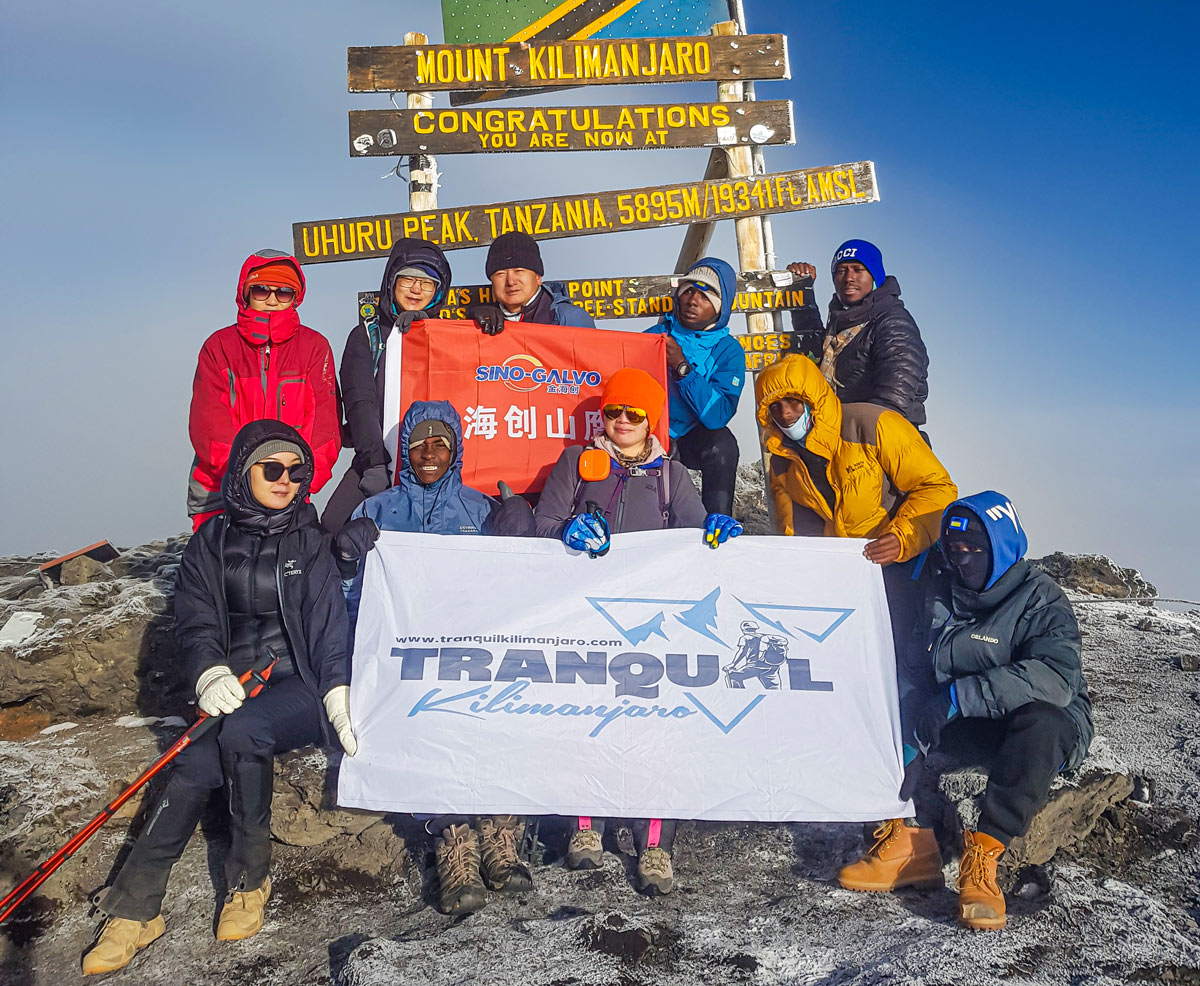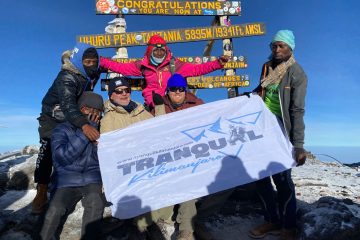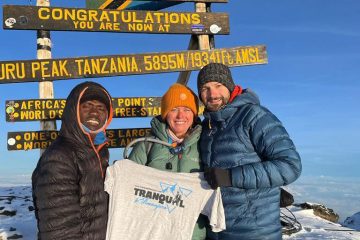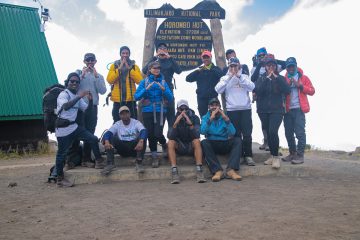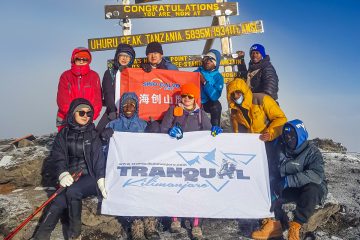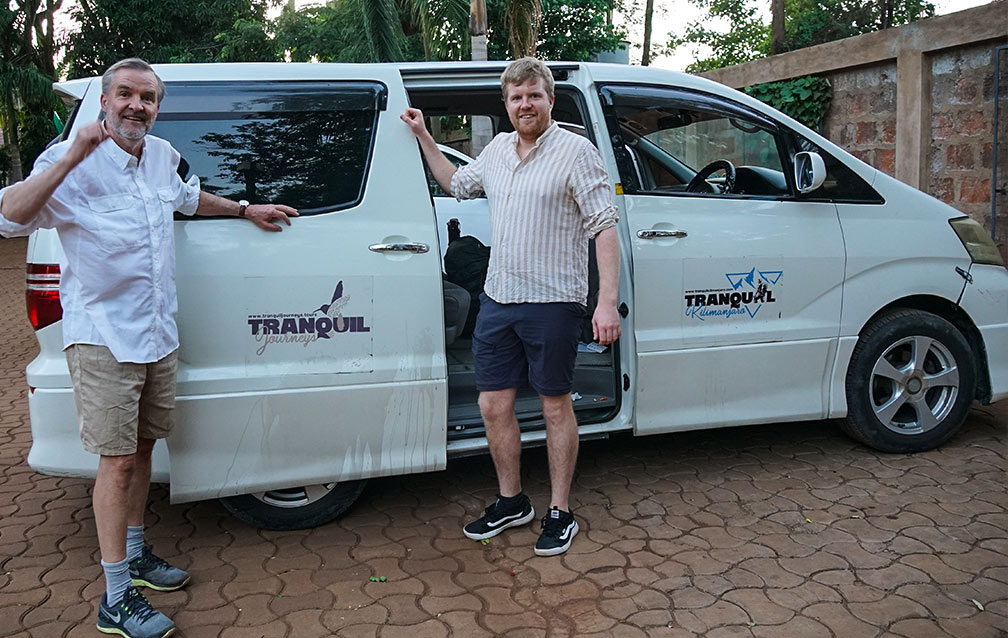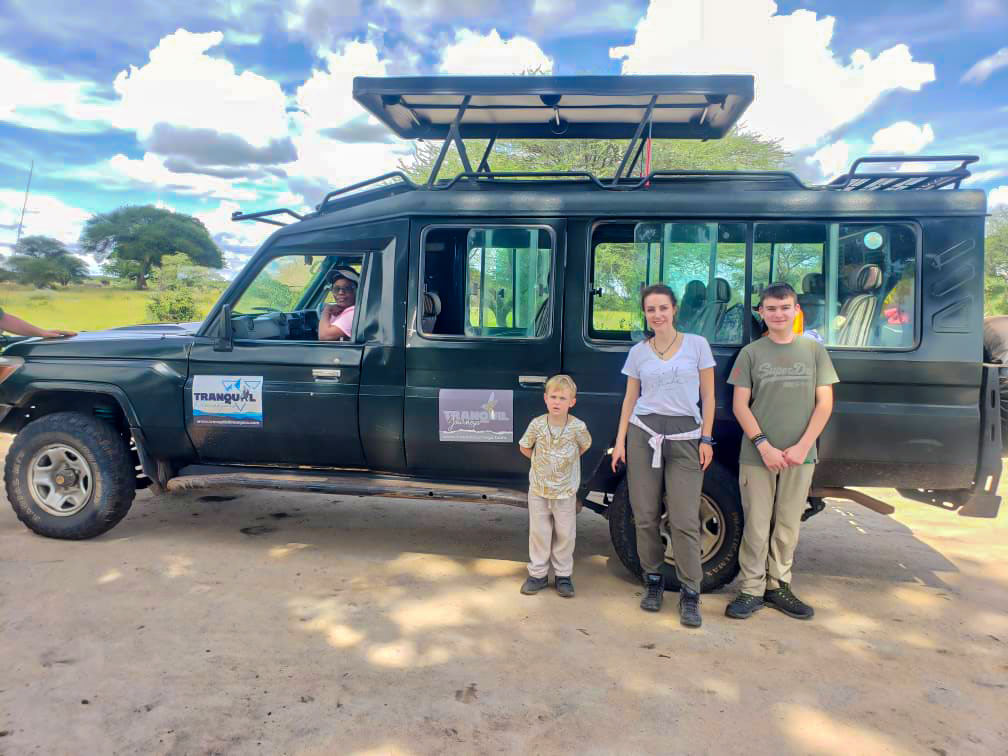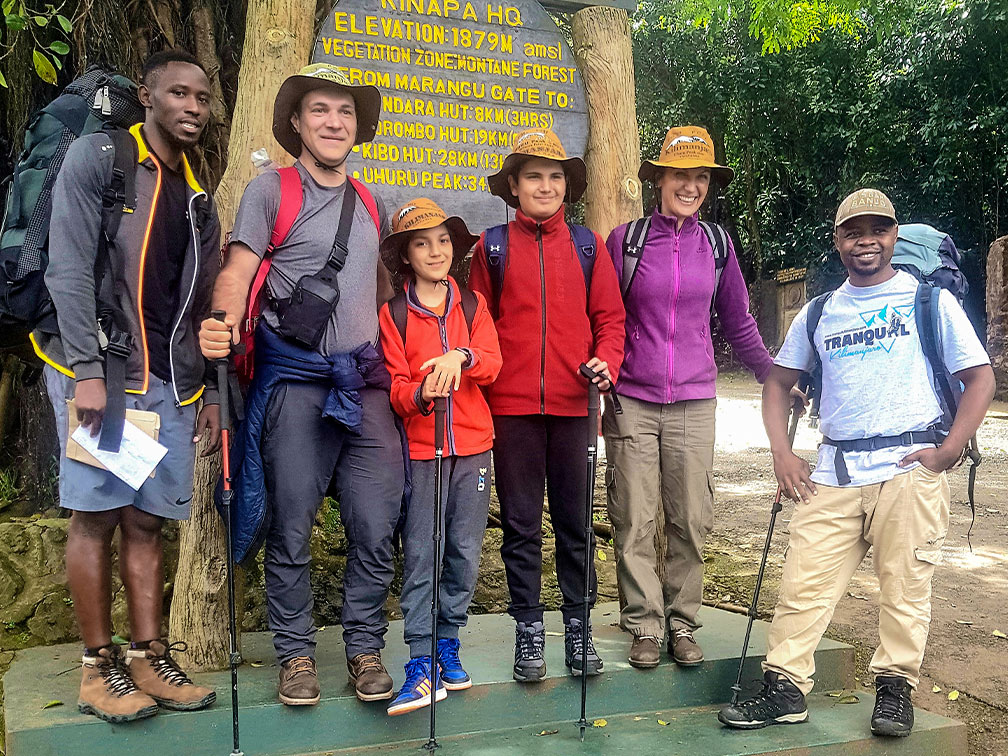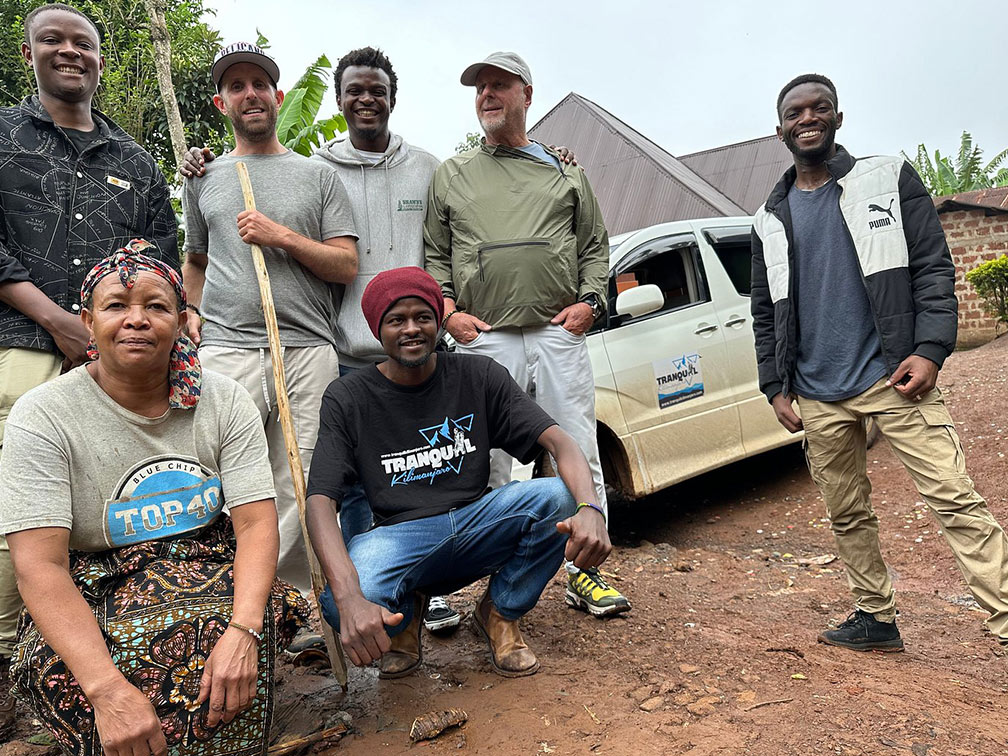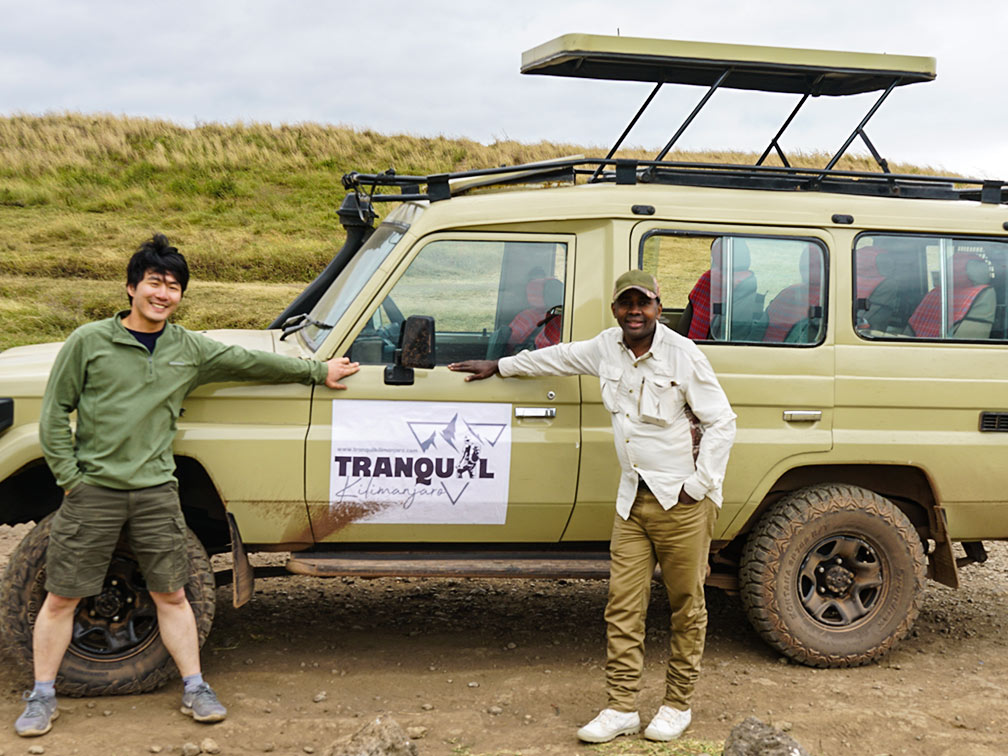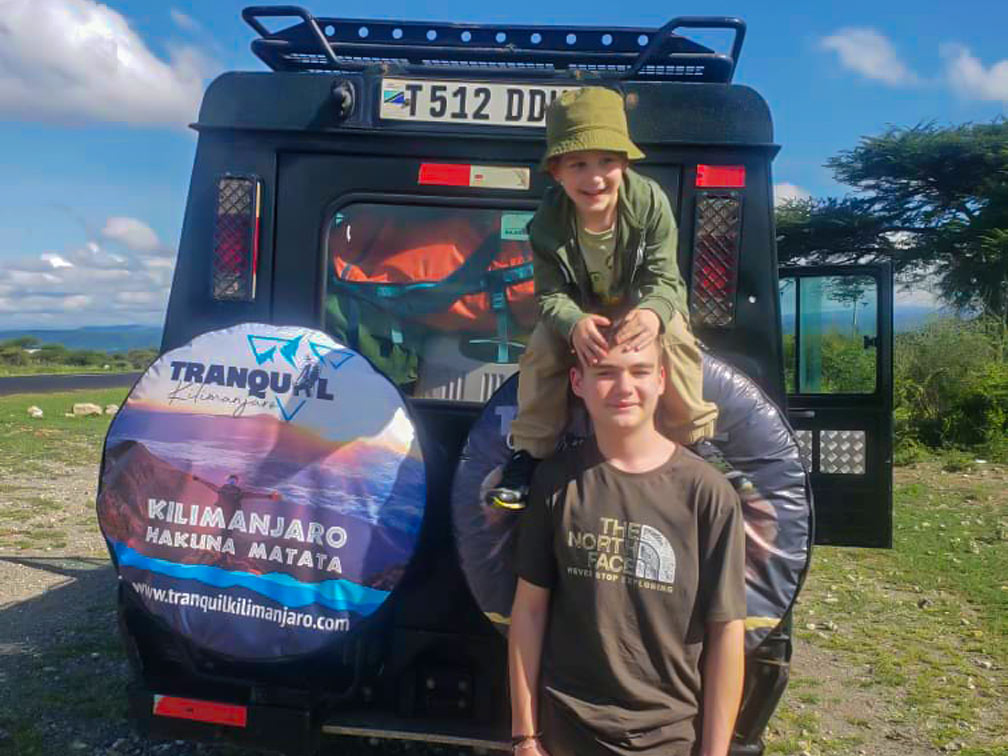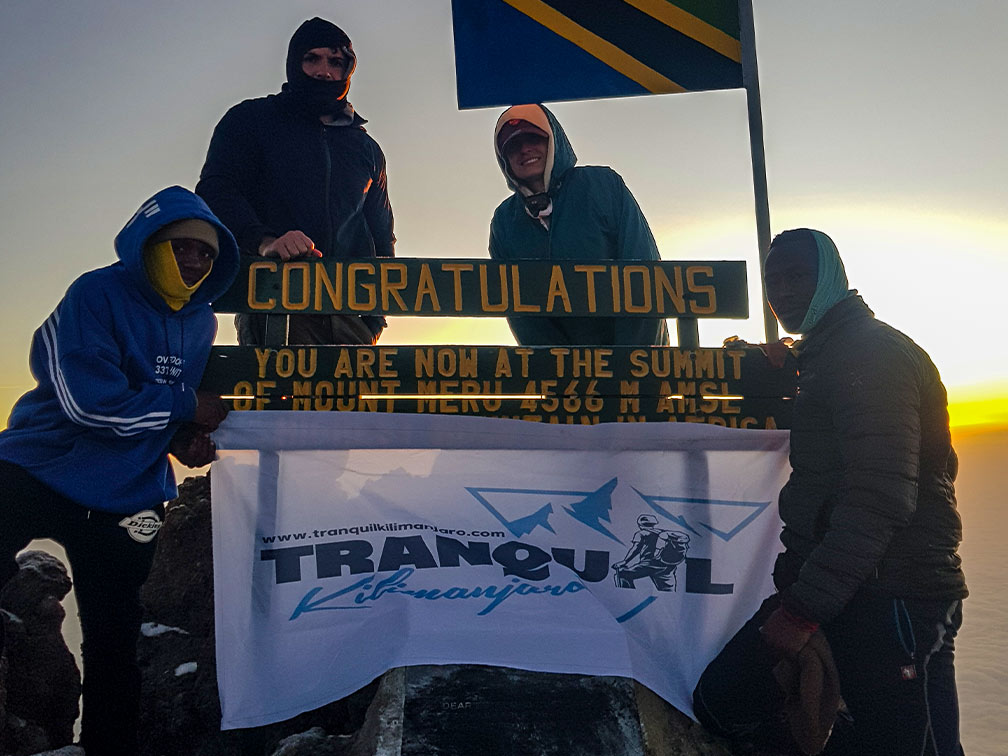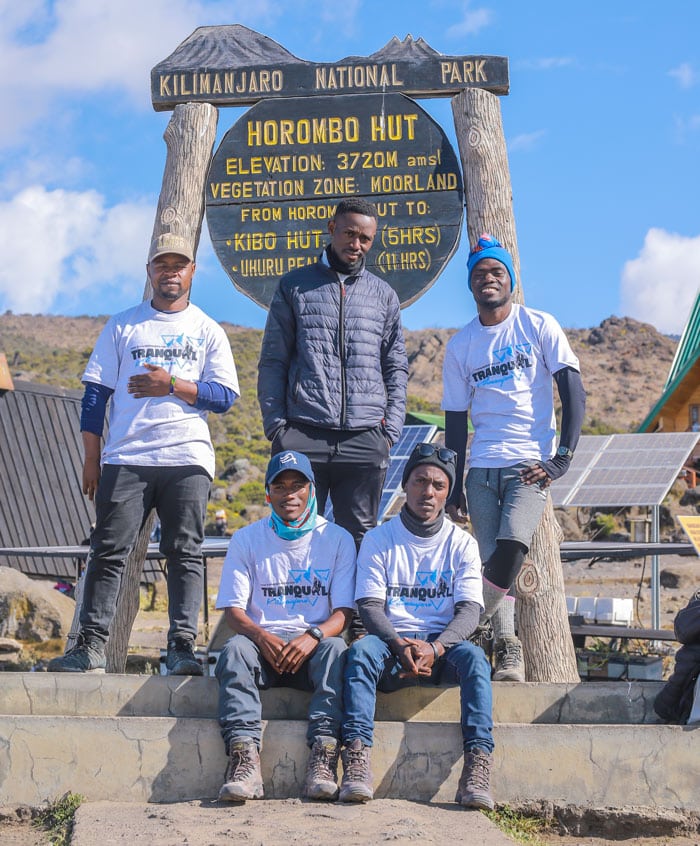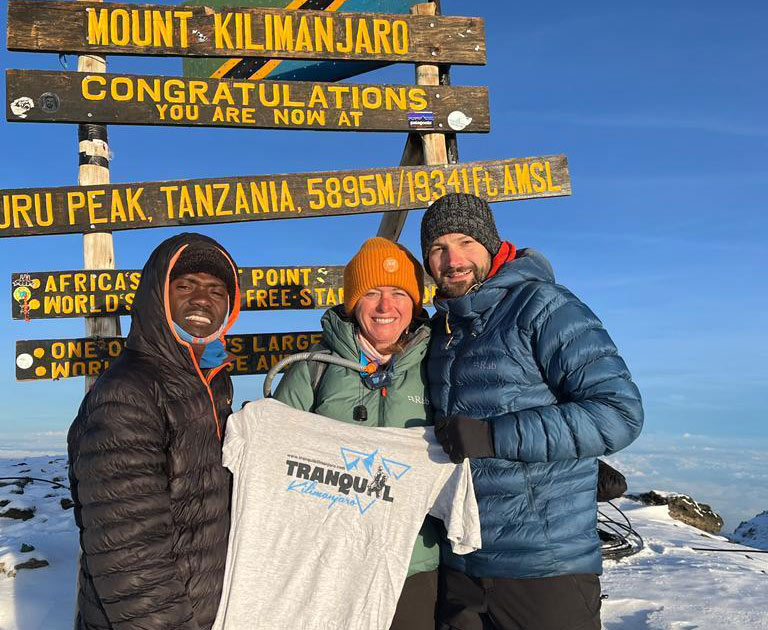Mount Kilimanjaro Treks - Mount Meru Hikes
As a local Mount Kilimanjaro climbing company, we would like to thank you for visiting TRANQUIL KILIMANJARO, your recommended mountain guides in Tanzania and East Africa as a whole, as specialists in Mount Kilimanjaro climbs. We’ve worked hard over the years to deliver high-quality Kilimanjaro treks at a reasonable and affordable price. Thanks to the incredible assistance of our experienced and knowledgeable guides, we have been able to maintain high-quality standards while paying close attention to safety. Our ultimate goal is to give you the unique experience of climbing Kilimanjaro with the people who are born and bred around the mountain, the locals who know Kilimanjaro by their fingertips. As a result, we’ve been able to successfully guide several summit rates to the top of Mount Kilimanjaro. Our objectives and goals are simple: by utilizing the greatest climbing talent in the country, we provide climbers of all abilities with the chance to reach their own goals through high-quality, challenging, safe, and enjoyable adventures. We specialize in unrivalled mountain adventures. Read about us
Hiking Mount Meru as a warm up to Kilimanjaro
It is possible to climb Mount Meru as a standalone package on its own or just hike the mountain as a warm-up to climbing Mount Kilimanjaro, a great way to acclimatize. Mount Meru is located in Arusha while Mount Kilimanjaro is located near Moshi, in the Kilimanjaro region. You have a better chance of watching wild animals around Mount Meru as it is located within the Arusha National Park.
8 days Lemosho Route Itinerary
7 days Machame Route Itinerary
6 Days Marangu Route
9 days Northern Circuit Route
Why climb Mount Kilimanjaro with Tranquil?
EXPERT GUIDES
QUALITY SERVICE
SAFETY FIRST
SUPERB SUPPORT
RELIABLE OPERATOR
VALUE FOR MONEY
Climbers' Reviews about their Kilimanjaro Experience!
It takes about 5 to 9 days to climb Kilimanjaro from the entry gate located at the base of the mountain and descend back to the base of the mountain. The duration it takes to climb Mount Kilimanjaro depends on the route that your will choose. Most of these routes have two variants each, for example, 6 days Machame Route and 7 days Machame Route or 7 Days Lemosho Route and 8 Days Machame Route or 5 days Marangu Route and 6 days Marangu Route variation. The extra day added on these route itineraries is to help with acclimatization, for a better chance to reach the summit, Uhuru Peak.
Your odds of reaching the summit increase with each additional day you spend on the mountain. According to statistics, the more time you spend acclimatizing, the higher your chances of success. Therefore, we highly advise against booking the required minimum number of days. It’s likely that you’ll get altitude sickness, have a bad hike, and not make it to the summit. It is strongly advised to climb for seven or more days in order to be safe and successful. The most popular tours are our 8 and 9 day trips.
The best time to climb Mount Kilimanjaro is during the warmest and dryest months of the year in January-February or August-September when the temperatures are warmer and the sky is clearer with less or no cloud cover. These are peak seasons and traffic is high on the popular routes. If you want an optimum time with great weather to climb with fewer crowds on the mountain, consider climbing in March or October, just before each of the two rainy seasons.
Generally speaking, January, February, and September are the warmest and driest months to climb Kilimanjaro. The months of June, July, August, and October are also favorable. However, the weather and temperatures can vary greatly depending on the height and time of day.
The long rainy season, which lasts from late March to early June, and the brief rainy season, which lasts from November to the start of December, are best avoided by the majority of people.
The temperature of Mount Kilimanjaro does not alter significantly from season to season. Instead, the height and time of day have a greater impact on the temperature of Mount Kilimanjaro. From base to peak, the route travels through a number of diverse climate zones, each with its own range of temperatures, levels of humidity, and precipitation. As you climb higher, the temperature drops from the lower slopes’ average of 70 to 80 F. At the peak, nighttime lows may be as low as 20 or -20F.
The average cost of climbing Mount Kilimanjaro varies from roughly $1,150 to $6000, the price depends on various factors like the number of people in your group, the duration of your trip, and accommodation before and after your climb among many other logistics.
Don’t only choose a trekking company based on the price! Charges greatly vary amongst operators, however, both extremely high and extremely low prices should be treated with caution. At competitive prices, Tranquil Kilimanjaro provides climbs of the highest caliber. At these prices, we are able to cover all park fees, pay staff members a living wage, and provide wholesome food, and equipment, all while giving our customers excellent service that is on par with or better than climbs that are significantly more expensive.
Each path has unique qualities that you may or may not find appealing. When choosing your route, take the difficulties, scenery, and crowds into account. Your age, level of fitness, health issues, previous backpacking and trekking experiences, experience at high altitudes, level of motivation, and any other unique concerns should also be taken into account. Lemosho, Machame, the Northern Circuit, and Rongai are suggested itineraries by Tranquil Kilimanjaro. We may recommend the Lemosho route, 8 days as the best but at the end of the day, it is a matter of personal preference.
It is quite challenging to predict the level of mental and physical endurance required to climb Kilimanjaro. If you ask those who have attempted it and succeeded or failed, you will hear a variety of stories. The fact is that, like any other endeavor, some people excel at it while others find it difficult. We advise a minimum of two months of physical preparation; if you are already an experienced hiker, we advise less preparation. The optimum workout consists of four to six-hour day treks with mild elevation changes (around 1,500 ft) with a 20-pound pack. Focus on extensive workouts at a slow pace because endurance is crucial.
Personal gear and supplies must be brought; however, community supplies (tents, food, cooking utensils, etc.) are given. Everything you need to conquer the mountain’s varied terrain and the weather is included in our exhaustive list of equipment. It consists of gear like a backpack and sleeping bag as well as technical clothes like a waterproof jacket, an insulated jacket, and base layers. You should be aware that while hiking between camps, you will only be carrying a small daypack. Our support team will transfer the rest of your equipment. No need to lug around bulky bags!
Though the mountain is serviced by hundreds of businesses, only a small number of them can be trusted. Choose a reputable firm with knowledgeable, experienced guides who adhere to strict safety requirements. Find a provider who has a track record of success serving a variety of clients over a long period of time. Since we started more than 15 years ago, Tranquil Kilimanjaro has assisted more than 15,000 guests in reaching the summit. We are experts in Mount Kilimanjaro. We’re still going strong, actually.
Strong safety measures are in place at Tranquil Kilimanjaro to reduce the risks associated with trekking at high altitudes. Our mountain guides do health checks to check the oxygen saturation and heart rate. Additionally, we can tell whether climbers have altitude sickness and how severe it is. Every climb includes the addition of bottled oxygen as a precaution and safety measure. If required, we can even start a helicopter rescue. Our top concern is seeing to it that you are healthy and enjoy your trek, and we take that duty very seriously.
There are several low-cost tour companies that provide affordable climbs. These badly run businesses rely solely on low prices to draw customers. These operators simply cannot deliver adequate services without cutting costs in ways that degrade the quality of your ascent. They start off with subpar guides (great guides don’t work for cheap businesses), dubious gear, and nutrient-poor meals. They also indulge in disgusting tactics including providing pitiful wages, underfeeding employees, and making porters carry loads that are heavier than they are allowed to. Never go up a mountain with a cheap operator.
See these 5 great ways of climbing Kilimanjaro on a low budget
Tanzania is frequently served by Ethiopian Airways, KLM, Turkish Airlines, Edelweiss, Qatar Airways, and KLM. We advise booking an international ticket that lands at Kilimanjaro International Airport if your journey to Tanzania is to climb Mount Kilimanjaro or go on a safari (JRO). From the airport, it takes only 40 minutes to get to our hotels.
If for whatever reason you are unable to fly internationally to Kilimanjaro Airport, you can fly into Zanzibar (ZNZ) or Dar es Salaam (DAR), and then take a local Tanzanian carrier to Kilimanjaro. You can get assistance from Tranquil Kilimanjaro managers while buying tickets for domestic flights.
The Video Testimonials
Choose your route wisely.
Which Kilimanjaro route is the best for climbing?
For Mount Kilimanjaro routes, there are different factors for choosing a route that will take you to the Uhuru peak summit. Each route is different, so the question of choosing the best route lies entirely in what attracts you. Among the top priorities, we have to consider when choosing your route include, your level of fitness, hiking experience, high altitude experience, your inner motivation and drive, medical conditions, and of course, your age or any other special criteria that we may have to consider. After determining that, then we can select your route in relation to difficulty levels, crowd traffic, the beauty of the scenery, the number of days it takes to climb Mount Kilimanjaro, and your budget which will help determine the cost of your Kilimanjaro climb. After all, is said and done, Tranquil Kilimanjaro recommends the Machame route, Northern Circuit, Lemosho Route, and the Rongai route based on summit success rate and suitability.
Lemosho Route vs Machame Route which one is the best?
These routes are both unique in their own ways. Personally, we prefer to recommend the 8-day Lemosho Route package as the route is very scenic, less crowded, and offers enough time for acclimatization. The Machame Route is also a great route to climb the mountain, especially when you choose the 7 days Machame Route itinerary which offers ample time for acclimatization. It is more popular as it is an old route on Kilimanjaro. The Lemosho Route wins in many aspects, in terms of scenery, slope profile, acclimatization, and trail conditions. It is an all-around great route that is why we think it is the best. 99% of our past clients share the same opinion too. Read more about choosing the best route.
Kilimanjaro, Safaris & Zanzibar Beach Combo
There are many safari options at your disposal after you climb Mount Kilimanjaro with Tranquil Kilimanjaro. You could tailor-make your bespoke Kilimanjaro trekking package with a safari addon, a Mount Kenya trek, a Mount Meru hike, a beach relaxation getaway to the spice islands of Zanzibar. There is more to Kilimanjaro than just the mountain as you could choose to take a day trip around the Kilimanjaro region to Materuni waterfalls, village, and coffee tours Moshi and Arusha towns have many attractions surrounding them so if you need something to do before climbing Mount Meru or Kilimanjaro, you can ask for the nearest activities to partake. You could take a refreshing dip in the crystal and natural waters at Kikuletwa/Chemka/Maji Moto Hotsprings in Boma near Moshi. Another great add-on for your mountain trek would be taking a cultural trip in West Kilimanjaro’s Olpopongi Masai cultural site and even a walk further north to Arusha National Park, Monduli Juu, Lake Natron, Empakaai Crater near the famous “mountain of God” at the Ol Doinyo Lengai mountain.
When is the best time to climb Kilimanjaro?
View this post on Instagram
Famous Climbs
Mt Kilimanjaro sits very close to the equator and has none of the seasons we are used to in either the Northern or Southern Hemispheres. Temperatures vary very little throughout the year and certainly by comparison with the change in temperature you experience climbing Kilimanjaro because of the altitude the seasonal variations are inconsequential.
What Kilimanjaro does experience though is big seasonal variation in rainfall. It has two rainy seasons: what they call the short rainy season, traditionally between mid-November and mid-December, and the long rainy season in April and May. In both these periods, you can expect some rain most days and in the April-May period, this rain can be prolonged.
So if staying dry is critical, aim for January to March and May to October. Remember though that nearly everyone else wants to do the same so these are the busiest months. If you can tolerate a little rain climbing off-season can be fun, not just because it will be quiet but also because there is a good chance of snow on the summit. Learn more about the best time to climb Mount Kilimanjaro here
Climb Kilimanjaro during the full moon
To make your climb on Mount Kilimanjaro even more enjoyable, consider the Kilimanjaro full moon options when the routes are illuminated by natural light from the moon, making it easier to trek especially during summit night which usually begins at midnight so that you can make it to the summit, Uhuru peak by sunrise. Learn more about the best time to climb Kilimanjaro and the full moon dates for trekking.
With years of mountain guiding experience, Tranquil Kilimanjaro has justly earned its reputation as one of the most eminent guide services in East Africa. We uphold strict safety standards, climb with small ratios, provide you with the best, most experienced Mt. Kilimanjaro guides, and have an infrastructure that is entirely focused on your personal safety and success on Mt. Kilimanjaro.
How to climb Mount Kilimanjaro
The purpose of climbing Kilimanjaro is to make sure you get to the top safely and have a great time.
We run our own Kilimanjaro treks and manage every part of your trip to offer you the best opportunity to reach the summit and enjoy yourself.
Our hands-on approach has enabled us to achieve a summit success rate of 98.8%! For every trip, our team will go above and beyond to make it unforgettable.
Before embarking on this life-turning expedition to the highest peak in Africa, there might be many questions lingering in your mind. You can get more answers from our frequently asked questions section or you could simply send us an email at [email protected] and we would be glad to answer all your questions. Below, we have captured a few common questions that stream into our inbox.
Private climb, Join a group for Kilimanjaro or for charity?
We offer three expedition styles to climb Kilimanjaro: private climbs, open groups, and Kilimanjaro charity challenges. Whichever you choose, our experienced team will help you achieve your goal of climbing Kilimanjaro: Africa’s highest mountain.
Private climbs
Private trips to climb Kilimanjaro are your tailor-made adventure, giving you total flexibility and the highest chance of success. Just choose your date, route, and any of our tailor-made options. Perfect for a group of friends or a charity group or a couple looking to celebrate a special birthday or anniversary. Upgrades to private climbs have an additional cost depending on the size of the group. The good thing about private Kilimanjaro climbs is that you can add a Tanzania safari adventure that can take you to the most popular parks in the country like Serengeti, Ngorongoro or Tarangire National Park to your trip or a nice relaxation at the beach with a Zanzibar beach holiday extension
Open group joining climbs
If you want to be in the company of other trekkers while you climb Kilimanjaro then joining an open group climb is perfect for you. Our group climbs run every week during the main climbing season from June – October and December – March. They are limited to a maximum of 12 climbers to make sure you get the best chance of summit success. Particularly popular are our open group full moon climbs which run every month.
Charity challenges to climb Kilimanjaro
We do not offer complicated sponsor-funded climbs, just great value, tailor-made challenges so that more of the money you raise goes to charity. We also offer our charity climbers special low deposits so that they can get on with fundraising for their chosen charity while our PR team offers a helping hand to promote their Mount Kilimanjaro charity challenge.
Where to stay during, before and after your Mount Meru or Kilimanjaro climb?
We will check you into a hotel or lodge in Moshi for rest and leisure before your climb begins when we pick you up at the Kilimanjaro International airport.
You’ll meet your guides for a climb briefing the day before your climb when they’ll answer any questions you have and double-check your gear. We may organise a game-viewing walk in Arusha National Park (accompanied by an armed ranger), or you can travel into Arusha town for some last-minute shopping or dinner, or you can select from one of our numerous day tours around Moshi and the Kilimanjaro region.
After your climb, you may get your climbing gear washed and even your filthy hiking boots cleaned by the friendly staff, ready for your next adventure.

